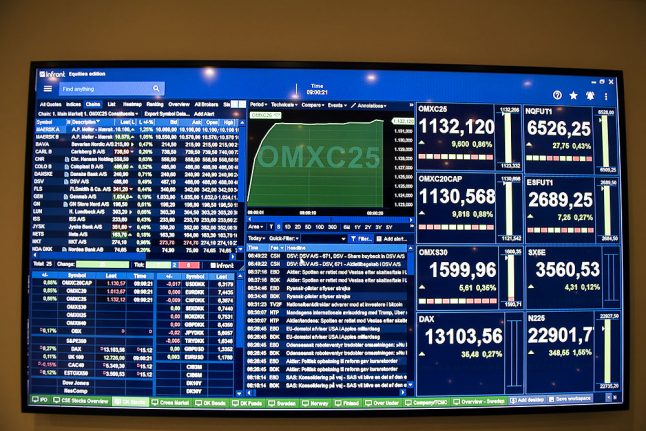The fall represents the eighth consecutive day in which the Danish index has fallen, while the C25 is down by over 13 percent since the beginning of the year, Jyllands-Posten’s financial arm Finans reports.
Medical company Ambu and cleaning equipment producer Nilfisk are among those to suffer most under the most recent downturn, according to the report.
The British, German, Norwegian and Swedish markets also saw falls early on Thursday, Finans reports.
European markets appeared to be affected by falls in the American S&P 500, Nasdaq and Dow Jones indexes, which all fell by more than three percent on Wednesday in the worst day for the US stock exchange in eight months, according to the report.
That fall also spread to Asian markets on Thursday.
“The strong reactions seem to be a combination of concern over higher interest and political uncertainty over the relationship between the US and China as well as the Italian boxing match with the EU,” Andreas Østerheden, a senior strategist with the Nordea bank, told Finans via a written comment.
READ ALSO: Danske Bank shares fall again after new money laundering claims



 Please whitelist us to continue reading.
Please whitelist us to continue reading.